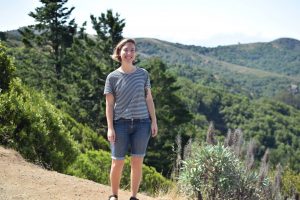On Tuesday, February 19th, Ph.D. Candidate Danielle Dumaine will be presenting at Harvard University’s Radcliffe Institute as part of the Boston Seminar on the History of Women and Gender. Her paper is titled “Sisterhood of Debt: Feminist Credit Unions, Community, and Women’s Liberation.” For more information, click here.
1. Would you please share some of your findings from your upcoming presentation at MHS paper and elaborate on how this topic relates to your dissertation?
The presentation on Tuesday is based on a pre-circulated paper that can be accessed by attendees. I begin by tracking how women (particularly single/divorced women and non-white women) were discriminated against by the banks and the credit industry after World War II. For example, many banks would not accept a women’s income in a loan application if she was married. Another big problem was that many divorced women had no credit in their name or bad credit from their husband. This could make it incredibly difficult to do basic things like renting an apartment or buying a car. The paper then gives a brief history of the law that changed that, the Equal Credit Opportunity Act (ECOA), but concludes that the law had a lot of shortcomings and almost no enforcement mechanisms. Basically, if you thought you were discriminated against you had to figure out which one of a dozen agencies to report the incident to (this has since changed). It put a large burden on consumers to be experts in lending laws and government agencies. That is where Feminist Credit Unions (FCUs) come in. Twenty-nine FCUs opened between 1974 and 1979. Connecticut had an FCU in New Haven and Hartford. You can see the rest here. These credit unions operated on the idea that feminists needed a place to “recycle” money within the movement to fund feminist projects. Other FCUs went further and said that women were good credit risks because they were women and lent out money accordingly. Now as you can probably guess, most of these projects failed. This type of community credit union takes a lot of work, time, and money to maintain. Really, the central issue for most FCUs became the question of what to do with delinquent accounts. Do you take a fellow woman to court? Repossess the car she needs to drive to work/daycare/etc.? This caused a lot of really painful fights. The paper ends with a discussion of how mainstream banks and credit card companies used the language of feminism to appeal to women customers once they figured out that getting a bunch of women into debt could be profitable. Sorry to end on a cynical note.
My main conclusions in relation to community and women’s liberation are that FCUs represent a level of coalition-based organizing and regional organizing that historians really haven’t fully acknowledged. Many of these projects brought together radical feminists, liberal feminists, Black feminists, and more for this shared goal of making loans accessible to women. It is also a history of women’s imagination. The women who started these FCUs wanted to rewrite the rules to banking and lending. They wanted to see applicants as whole beings, not a series of risk factors punched into a so-called “neutral” credit scoring system. Their solutions were often really fraught and didn’t work, but I think they are worth spending some time looking at.
2. How did you become interested in the life and work of poet Diane di Prima for your dissertation?
I took Professor Ronna Johnson’s class on the Beat Generation during my senior year at Tufts and we read some of Diane di Prima’s work. When I got to UConn, I met with Melissa Watterworth Batt at the Dodd Center to discuss the collections and to see if there was something I would want to use for my 5102 research paper. She suggested di Prima’s diary from Timothy Leary’s Millbrook Commune. She said that not many researchers seemed interested in it. At the time I thought I was going to write a dissertation on the women’s liberation movement so it wasn’t a great fit, but I’m nosy so working with a diary seemed like fun. Once I started reading I knew that it was a really special object. So I shifted gears and here we are!
3. In addition to pursuing a Ph.D. in History, you also have undertaken a certificate in Feminist Studies from the Women’s, Gender, and Sexuality Studies Department. How has this interdisciplinary approach impacted your research, influenced your teaching, and possibly challenged and/or expanded upon the work of historians?
It seems to me that most historians do at least some reading outside of their field and doing a certificate is a great way, as a student, to gain a solid footing in a discipline that you might want to read/borrow from/contribute to in your work. There are so many smart people doing great work out there that I don’t want to limit myself to just reading in history. In my dissertation, I use work from scholars of literature, queer theory, political science, critical race studies, and more. Taking certificate classes is also a great way to network with grad students from other departments and learn about their training/methods and to make friends.
4. If you could teach any course, what would it be and why?
I made up a syllabus for a job application this fall called “A History of ‘Cool’ in Postwar America” that I think would be really fun. I’d also like to teach a course on women’s labor history since the Civil War. And “Gender and Sexuality in U.S. History.” I have a whole list on my computer.
